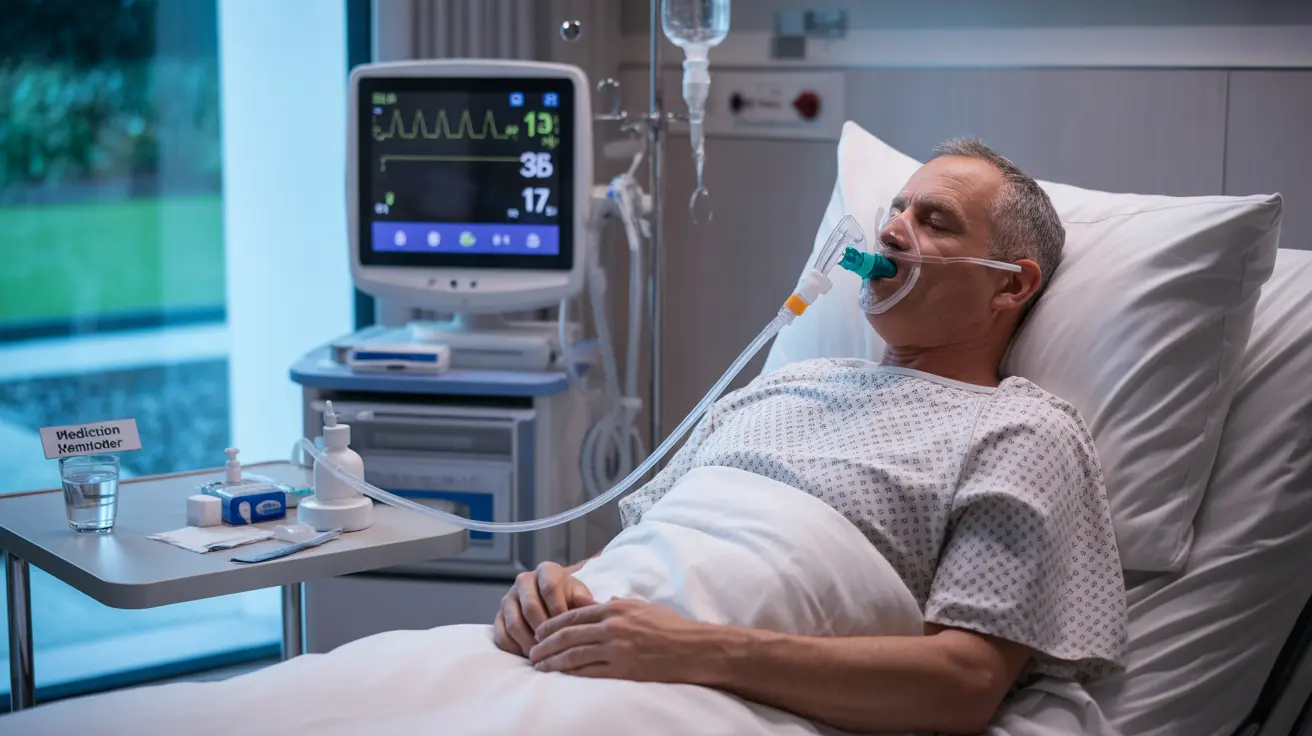For individuals living with Chronic Obstructive Pulmonary Disease (COPD), understanding when hospitalization may be necessary and what to expect during a hospital stay is crucial for managing their condition effectively. When COPD symptoms worsen significantly, known as an exacerbation, hospital care might become essential for proper treatment and recovery.
This comprehensive guide explores the typical duration of hospital stays for COPD exacerbations, factors that influence hospitalization length, and strategies to manage the condition effectively both during and after hospital care.
Understanding COPD Exacerbations and Hospital Admission
COPD exacerbations can be serious medical events that require immediate professional attention. These episodes are characterized by a significant worsening of respiratory symptoms beyond normal day-to-day variations, often necessitating changes in medication and, in severe cases, hospitalization.
Typical Length of Hospital Stays for COPD
The average hospital stay for COPD exacerbation typically ranges from 4 to 7 days, though this can vary significantly based on several factors. During this time, medical professionals focus on stabilizing symptoms and optimizing treatment protocols to ensure a safe recovery.
Factors Affecting Hospital Stay Duration
Several key factors can influence how long a patient needs to remain hospitalized:
- Severity of the exacerbation
- Presence of complications
- Response to treatment
- Underlying health conditions
- Access to home support systems
- Oxygen levels and breathing stability
- Overall physical condition
Treatment During Hospitalization
During a hospital stay for COPD exacerbation, patients typically receive:
- Bronchodilators and other respiratory medications
- Supplemental oxygen therapy
- Corticosteroids to reduce inflammation
- Antibiotics if bacterial infection is present
- Breathing treatments and respiratory therapy
- Regular monitoring of vital signs and oxygen levels
Post-Hospital Care and Prevention
Following discharge, proper management and preventive measures are essential to avoid readmission. This includes:
- Following prescribed medication schedules
- Attending follow-up appointments
- Participating in pulmonary rehabilitation programs
- Monitoring symptoms carefully
- Making necessary lifestyle modifications
Frequently Asked Questions
What are the typical symptoms that require hospitalization for a COPD exacerbation?
Symptoms requiring hospitalization include severe shortness of breath that doesn't improve with regular medication, inability to speak in complete sentences, bluish lips or fingernails, rapid breathing, confusion or drowsiness, and chest pain. Any significant worsening of usual COPD symptoms that don't respond to regular treatment should prompt immediate medical attention.
How long does a typical hospital stay last for someone with COPD exacerbation?
The average hospital stay for COPD exacerbation usually lasts between 4 to 7 days. However, this duration can vary significantly depending on the severity of the exacerbation and individual patient factors.
What factors can increase the length of hospital stay for COPD patients?
Factors that can extend hospital stays include severe infection, concurrent medical conditions, poor response to initial treatment, complications during treatment, need for mechanical ventilation, and limited access to home care support after discharge.
What are the most effective ways to prevent hospital readmission after a COPD exacerbation?
Effective strategies include strictly following medication schedules, attending all follow-up appointments, participating in pulmonary rehabilitation, avoiding triggers like smoke or air pollution, getting recommended vaccinations, and maintaining regular communication with healthcare providers.
How can I manage COPD at home to avoid frequent hospitalizations?
Successful home management includes taking medications as prescribed, using proper inhaler technique, following a healthy diet, exercising regularly as recommended by your healthcare provider, avoiding smoking and secondhand smoke, keeping up with vaccinations, and maintaining a clean living environment free from irritants.




